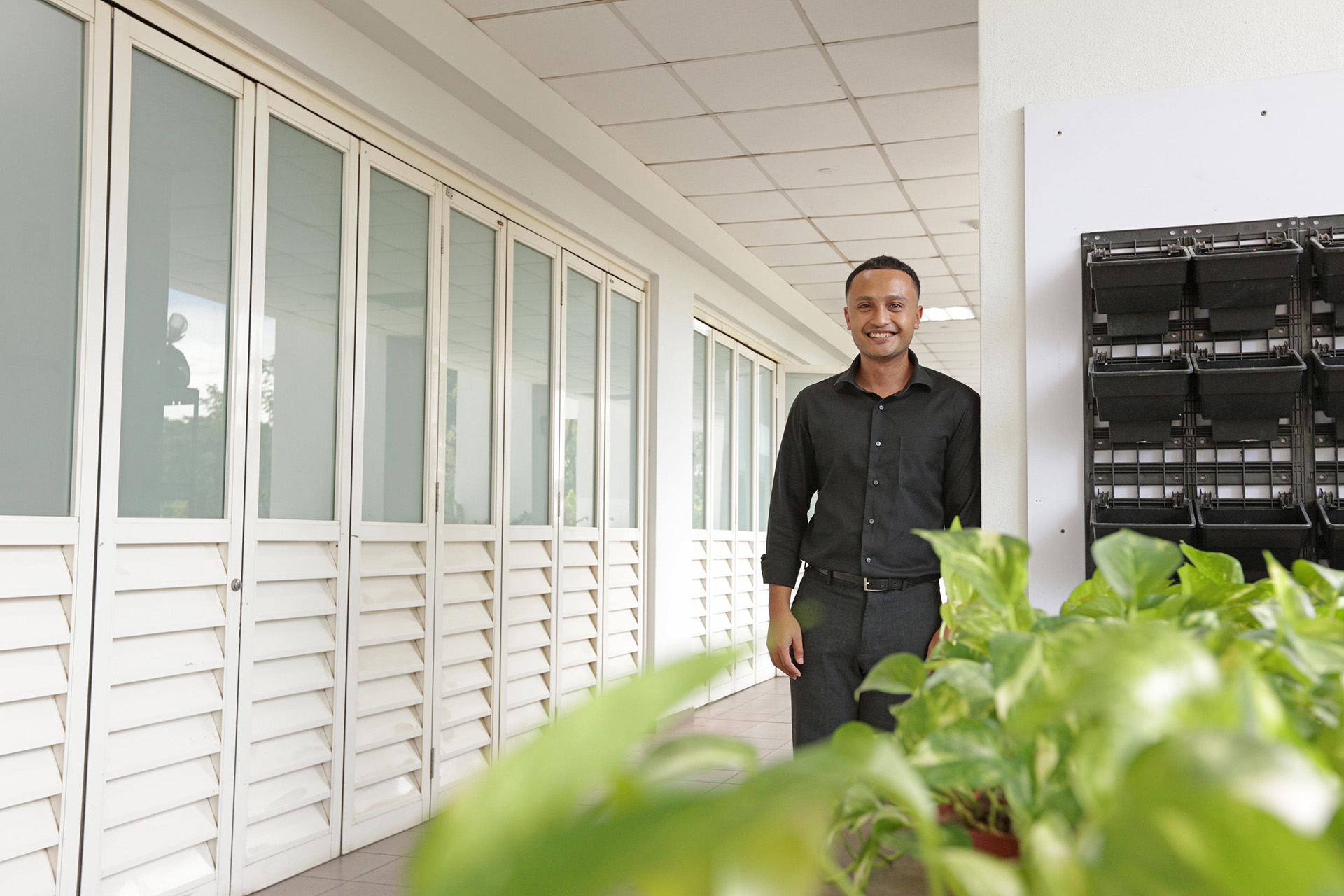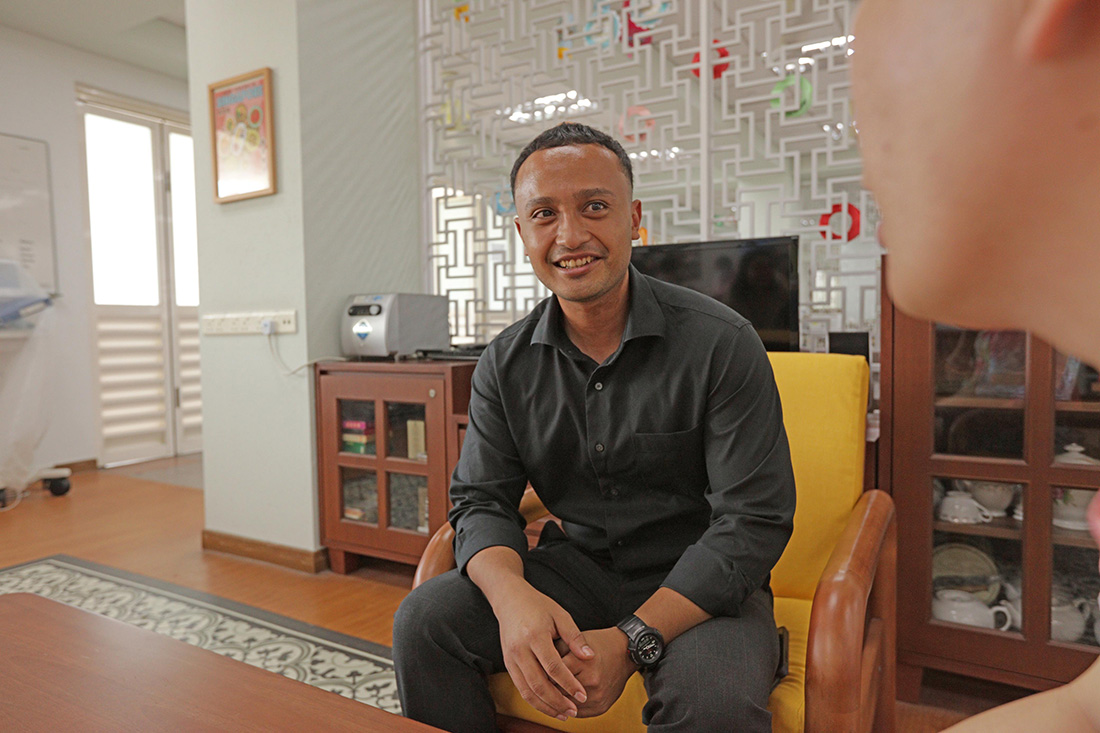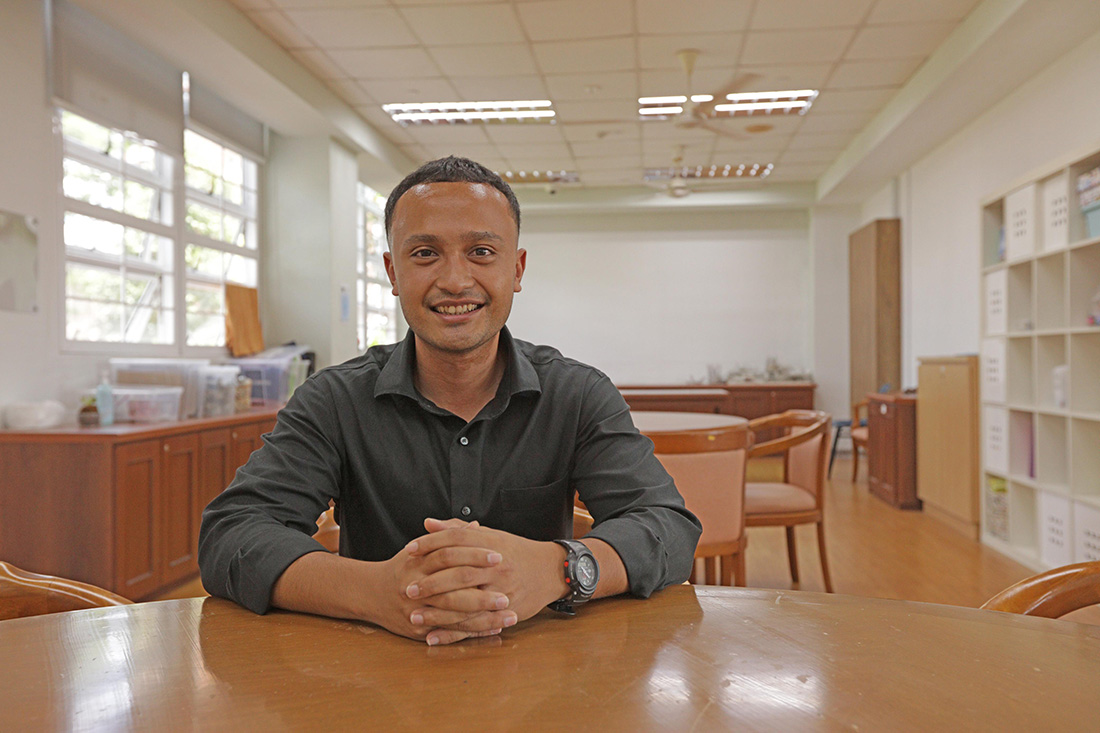
Inspector (NS) Muhammad Fadhli Bin Selamat’s role in community psychiatric nursing highlights the importance of communication, support and self-care.
As a senior staff nurse at the Institute of Mental Health (IMH), Inspector (NS) Muhammad Fadhli Bin Selamat is well aware of the misconceptions surrounding mental health. “People often think mental illness is a sign of weakness or that therapy is only for severe cases,” says the 31-year-old. “There’s also a belief that all mental health disorders are the same, or that individuals can simply ‘snap out of it.’”
Since joining IMH in 2014 after a stint with the Singapore Police Force’s Protective Security Command, Fadhli has been driven to challenge these stereotypes. He aims to encourage more people to seek mental healthcare when needed and to make self-care a priority, emphasising that mental health deserves the same attention as physical health. “Normalising these conversations empowers people to talk about their challenges, feel less alone and get the support they need,” he adds.
Fadhli’s journey into psychiatric nursing began during an attachment at IMH while pursuing a nursing diploma at Nanyang Polytechnic. He recalls: “I found the experience incredibly rewarding, as it allowed me to connect closely with patients, be their listening ear and create a safe space where they could share their feelings during recovery.”
Inspired by this experience, he felt drawn to a career where he could make a meaningful impact on the lives of those under his care. After two years at IMH’s acute ward, Fadhli spent eight months pursuing his Advanced Diploma in Nursing (Mental Health). Upon graduation, he rejoined the ward and is now a part of the Community Mental Health Team. This team visits patients at home to provide care and support, ensuring that they adhere to their medication and receive emotional support alongside their caregivers, who play an essential role in the recovery process.
A 2020 study by the Singapore Management University found that over 72% of caregivers to those with mental health issues reported feeling exhausted, with studies showing that these caregivers often feel even more burdened than those caring for people with chronic illnesses.

The home visits from Fadhli and his colleagues provide crucial reassurance and guidance, helping caregivers feel more equipped and patients more supported. “We assess patients’ mental states, review their medication adherence and share observations with caregivers,” he explains. “We also work with patients to set recovery goals, like helping them pursue work in areas they’re interested in, guiding them towards reintegration into society.”
Fadhli’s role often requires close coordination with multiple stakeholders across various agencies — such as social workers, mental health services, or other support groups — to address social or financial challenges that impact patients’ well-being. “Involving the community is essential,” he explains, “as an integrated support system greatly enhances care and improves patient outcomes.”
Recognising the toll caregiving can take, Fadhli encourages caregivers and healthcare professionals to seek support from their own social networks, whether through counselling, support groups, or mindfulness practices. Such activities have been shown to alleviate anxiety and stress, particularly for those in healthcare professions.
Family and friends can also play a vital role by simply listening without judgement. Fadhli advises allowing the person to share openly and offering reassurance when needed. A change of environment can also be beneficial. “Sometimes, taking them out for a meal offers a helpful break,” he suggests.

The COVID-19 pandemic introduced new challenges to Fadhli’s already demanding role, with infection control measures and additional protocols adding layers of complexity. “We could only manage these obstacles with the support and teamwork of our colleagues,” he reflects, emphasising the collective effort involved.
The experience reinforced for him the importance of maintaining self-care routines. Fadhli regularly exercises at the gym, which helps him reduce stress and improve his mood. “I also make sure to take breaks and set clear work-life boundaries,” he shares.
On weekends, Fadhli unwinds by listening to music, watching football, or catching Ultimate Fighting Championship matches. He also prioritises family time and travel during his annual leave. For him, maintaining a clear boundary between work and personal life is essential to mental well-being. “Instead of seeing relaxation as a guilty pleasure, we need to view it as essential for performing at our best. By establishing boundaries, like avoiding emails after work hours, we can recharge and approach each day with renewed focus,” he says.
While stress often drives people to withdraw, Fadhli hopes more Singaporeans will recognise the value of strong social connections in building mental resilience. “Regular interaction with friends or family is incredibly beneficial,” he notes. “Building and maintaining these relationships reduces isolation and enhances overall well-being.”
A sense of fulfillment at work also positively impacts mental health. Fadhli, who plans to further his expertise in psychiatric nursing and pursue leadership roles, takes pride in the difference he makes in others’ lives. “The most rewarding part of psychiatric nursing is supporting people through their toughest times, helping them find stability and hope. It’s both deeply gratifying and meaningful to be part of someone’s journey to better mental health.”
Like our stories? Subscribe to our Frontline Digital newsletters now! Simply download the HomeTeamNS Mobile App and update your communication preference to ‘Receive Digital Frontline Magazine’, through the App Settings.


